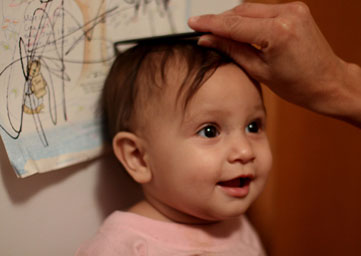Home » Course Layouts » Free Course Layout Udemy
Focuses on the core processes of growth and development in early to middle childhood. Considers developmental theories, issues and research findings related to physical growth and cognitive, emotional, and social development. Considers appropriate instruments to assess growth and development. Evaluates the efficacy of popular early intervention programs designed to enhance development in at-risk populations of children.
0
22
English
English [CC]
FREE
- Learn basic syntax that can apply to any language.
- Learn what is a programming language and the basic concepts for beginners.
- Understand what is Javascript in it's truest form.
- Know the basic syntax of Javascript.
- Know some hidden quirks in Javascript.
Description
Course Objectives
Upon successfully completing this course, students will be able to:- Describe the critical domains of health and development during early and middle childhood
- Apply developmental theory and research methods to a discussion of children's well-being
- Explain the major determinants of health and development during childhood
- Acquire skills needed to effectively communicate about child health and development research to policymakers and the public
Readings
Textbook: Shonkoff, J.P., Phillips D.A., (eds). From Neurons to Neighborhoods: The Science of Early Childhood Development. Board on Children, Youth, and Families. National Research, Committee on Integrating the Science of Early Childhood Development, Council, Institute of Medicine. National Academy Press. Washington, D.C. 2000.Readings
Textbooks
Shonkoff, J.P., Phillips D.A., (eds). From Neurons to Neighborhoods: The Science of Early Childhood Development. Board on Children, Youth, and Families. National Research, Committee on Integrating the Science of Early Childhood Development, Council, Institute of Medicine. National Academy Press. Washington, D.C. in 2000.Course content
-
- Course Description (Robert Blum and Lynne Michael Blum) 01:00:00
-
- Language and Conceptual Framework for Early Child Development (Robert Blum) 04:00:00
- The Epidemiology of Child Health: Domestic and Global Perspectives (Robert Blum) 04:00:00
- Emerging Self-Regulation: Temperment, Emotions, and Biological Sensitivity to Content (Kristin Voegtline) 04:00:00
- Cognitive, Moral, and Social Development in Childhood, Part I (Lynne Michael Blum) 03:00:00
- Effective Early Child Development Interventions (Robert Blum) 03:00:00
- Attachment Theory and Attachment-Based Interventions (Anne Duggan) 02:00:00
N.A
- 5 stars0
- 4 stars0
- 3 stars0
- 2 stars0
- 1 stars0
No Reviews found for this course.
Instructor
OpenCoursa
Accessible Education for Everyone
5
5
6
24217
4637
We are an educational and skills marketplace to accommodate the needs of skills enhancement and free equal education across the globe to the millions. We are bringing courses and trainings every single day for our users. We welcome everyone woth all ages, all background to learn. There is so much available to learn and deliver to the people.
Explore Free Courses
Access valuable knowledge without any cost.
{"title":"","show_title":"0","post_type":"course","taxonomy":"course-cat","term":"engineering-skills,health-and-safety","post_ids":"","course_style":"free","featured_style":"course6","masonry":"","grid_columns":"clear4 col-md-3","column_width":"268","gutter":"30","grid_number":"4","infinite":"","pagination":"","grid_excerpt_length":"20","grid_link":"1","grid_search":"0","course_type":"","css_class":"","container_css":"","custom_css":""}












